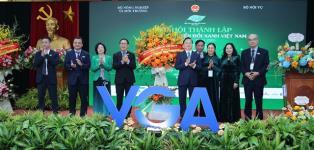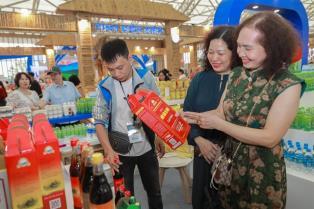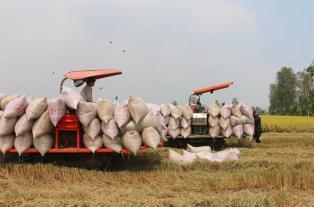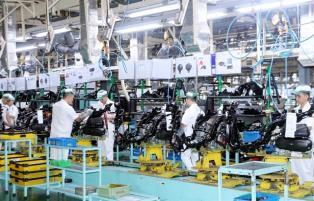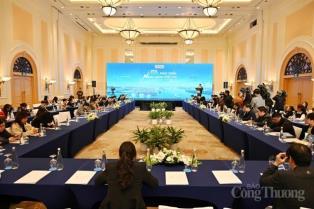Strict compliance key for Vietnamese exporters to unlock opportunities from EU trade deal
The EU-Việt Nam Free Trade Agreement offers Vietnamese enterprises the opportunity to expand their share in one of the world’s most lucrative but demanding markets.
HCM CITY — The EU-Việt Nam Free Trade Agreement offers Vietnamese enterprises the opportunity to expand their share in one of the world’s most lucrative but demanding markets.
However, it can only be realised if they fully comply with its rules of origin, tariffs, environmental standards, labour, and social responsibility.
This was highlighted at a seminar titled “Compliance with Import-Export Regulations under EVFTA to Optimise Costs and Leverage Tariff Preferences” held in HCM City on September 18.
Nguyễn Thị Phượng, CEO of TradeComply, said while the EVFTA deal presents a major opportunity, only businesses strictly complying with regulations would benefit.
The EU is Việt Nam’s third largest export market, and under EVFTA commitments nearly 99 per cent of tariff lines would be eliminated within seven years, offering a competitive edge for key exports such as textiles, footwear, wooden furniture, processed agricultural goods, and seafood, she said.
But she warned that even minor errors made while exporting goods can cost enterprises all tariff preferences.
Common mistakes include HS code misclassification, leading to incorrect tariffs or loss of preferential treatment, failure to meet Rules of Origin (RoO), lack of documents such as the C/O form EUR.1, and not satisfying measures related to food safety, quarantine, labelling, or environmental standards, she said.
She also warned that new and stricter EU regulations would directly affect Vietnamese exporters.
The Carbon Border Adjustment Mechanism (CBAM), for example, requires reporting of CO2 emissions for imports such as steel, cement, aluminium, and fertilisers, with carbon taxes to follow.
The EU Deforestation Regulation requires products such as coffee, timber and rubber to prove they are not linked to deforestation besides robust traceability systems generally.
EU importers are also increasingly demanding transparency in supply chains with respect to labour and environmental issues under accountability and ESG standards.
Vietnamese SMEs that fail to comply risk being excluded.
Phượng said: “International trade today is no longer just about logistics or pricing, it is about compliance with import regulations and standards. Proactive compliance helps businesses cut costs, strengthen negotiation power, and expand market reach.”
She advised SMEs to verify HS codes accurately, self-check FTA and RoO conditions, stay updated on NTMs and import requirements, set alerts for regulatory changes, cross-check and synchronise documents before shipment, and prepare compliance reports tailored to specific markets and sectors.
Phan Thụy My – Aimee, head of the business representative office in Việt Nam of the German state of Rhineland-Palatinate, described it as an ideal business location and also a strategic gateway for Vietnamese enterprises to access Europe.
She said the EU has updated its rules of origin to provide greater flexibility, particularly for goods with certificates of origin and in priority sectors.
The European Commission is developing new digital systems to simplify customs procedures, she said.
Since late 2023, CBAM has required importers to report emissions data in the case of carbon-intensive products.
Phytosanitary regulations have been tightened for various agricultural and plant products.
She said enterprises operating in Europe, and Germany in particular, should thoroughly familiarise themselves with regulations and seek assistance from the German Chamber of Industry and Commerce.
Nguyễn Thị Hồng Thúy, managing director of the Minh Phát International Coffee Co., Ltd, said: “Since the EVFTA came into effect, we have leveraged this agreement to increase our exports to the European market.”
She said the elimination of the 10 per cent coffee export tariff has been a boon for Vietnamese businesses.
Minh Phát’s coffee exports to Europe have shot up by 50 per cent from the pre-trade deal period, she revealed.
But to enjoy preferential treatment, her company has to trace the raw materials back to Việt Nam and meet quality standards such as ISO and IFS.
“Each shipment requires a separate set of documents, and it takes six months to a year to complete the process from sourcing materials and designing packaging to fulfilling the EU’s technical requirements.”
The seminar was organised by the Investment and Trade Promotion Centre of HCM City, the Business Representative Office of the German Federal State of Rhineland-Palatinate in Việt Nam and TradeComply. — VNS

